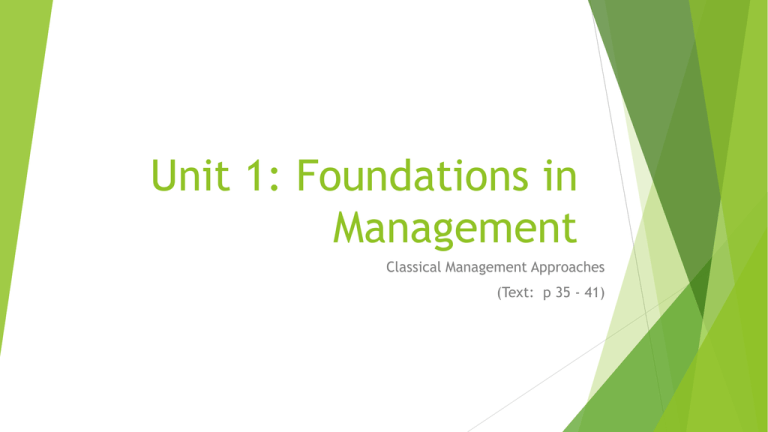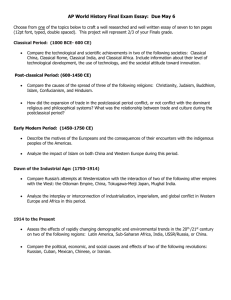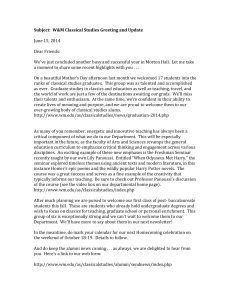Classical Management Approaches
advertisement

Unit 1: Foundations in Management Classical Management Approaches (Text: p 35 - 41) Classical Management Approaches Classical approaches to management include: Scientific management Administrative principles Bureaucratic organization Common Assumption for Classical Approaches: people at work act in a rational manner & motivated by personal & monetary gain Classical Management Approaches Scientific management “The principle object of management should be to secure maximum prosperity for the employer, coupled with maximum prosperity for the employee” (Frederick Taylor) Taylor’s Goal: Improve productivity of people at work. Develop rules of motion (efficiency), standardized work implements (repetition), and proper working conditions for every job. Carefully select workers with the right abilities for the job. Carefully train workers and provide proper incentives. Support workers by carefully planning their work and removing obstacles. Classical Management Approaches Scientific management (the Gilbreths) Motion study Science of reducing a job or task to its basic physical motions. Eliminating wasted motions improves performance. Many modern day businesses operate based on the findings of this study. Ex. McDonald’s, Ford Classical Management Approaches French industrialist, Henry Foyal, identified 14 principles of management that he felt should be taught to all aspiring managers. Many of these principles are still applied in modern day practice: Division of Labour Centralization Authority Scalar Chain Discipline Order Unity of Command Equity Unity of Direction Personnel Tenure Subordination of Individual Interests Initiative Esprit de Corps Remuneration Classical Management Approaches Administrative principles (Henri Fayol) — rules of management: Foresight — to complete a plan of action for the future. Organization — to provide and mobilize resources to implement the plan. Command — to lead, select, and evaluate workers to get the best work toward the plan. Coordination — to fit diverse efforts together and ensure information is shared and problems solved. Control — to make sure things happen according to plan and to take necessary corrective action. Introduced the notion that management is a variety of activities or actions. Classical Management Approaches Administrative principles (Mary Parker Follett) Groups and human cooperation: Groups are mechanisms through which individuals can combine their talents for a greater good. Organizations are cooperating “communities” of managers and workers. Manager’s job is to help people in the organization cooperate and achieve an integration of interests. Classical Management Approaches Administrative principles (Mary Parker Follett) Forward-looking management insights: Making every employee an owner creates a sense of collective responsibility (precursor of employee ownership, profit sharing, and gain-sharing) Business problems involve a variety of inter-related factors (precursor of systems thinking) Private profits relative to public good (precursor of managerial ethics and social responsibility) Classical Management Approaches Bureaucratic organization (Max Weber) Bureaucracy An ideal, intentionally rational, and very efficient form of organization. Based on principles of logic, order, and legitimate authority.



